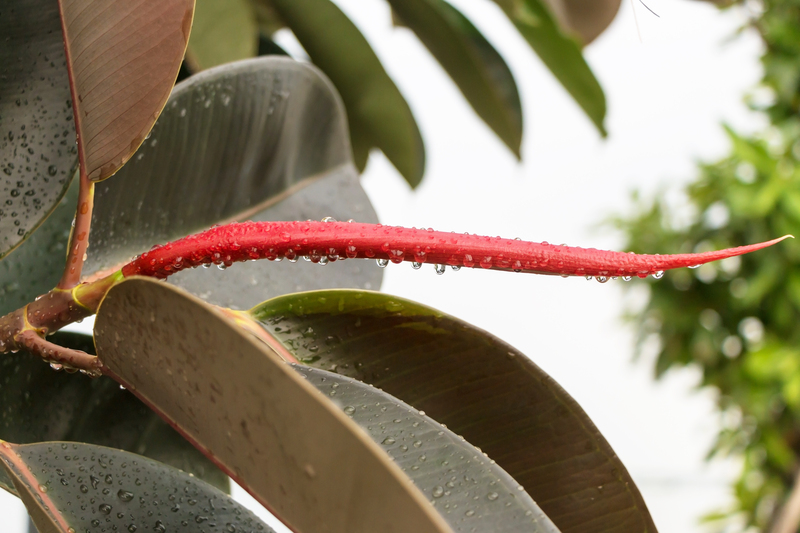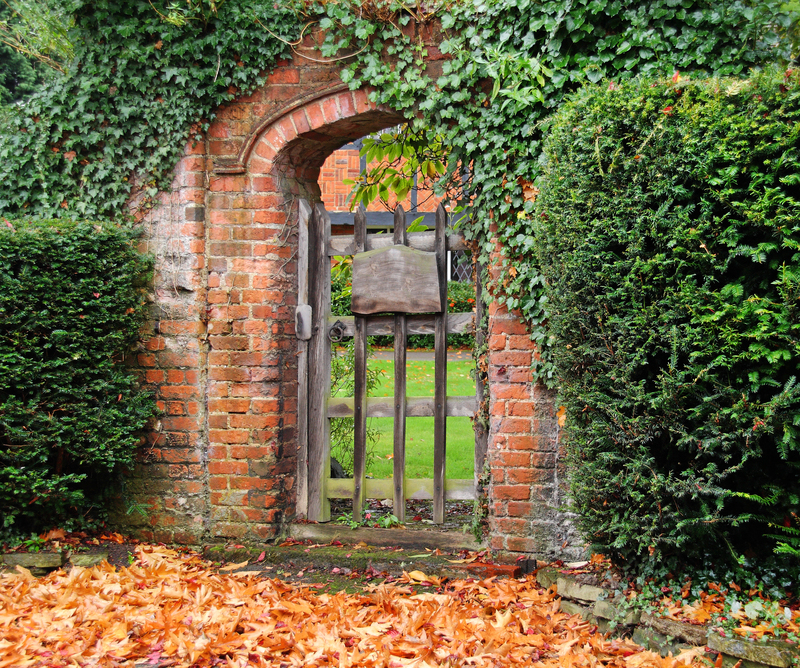Conquer Weeds with These 3 Essential Tips
Posted on 31/08/2025
Conquer Weeds with These 3 Essential Tips: Your Complete Guide to Weed-Free Gardening
Are you tired of seeing unsightly weeds invading your garden beds, lawns, and landscaping? Weeds are persistent adversaries, stealing nutrients and water from your desirable plants. But here's the good news - mastering weed control doesn't require toxic chemicals or backbreaking labor. This comprehensive guide will unveil the top three essential weed-busting strategies to conquer weeds, ensuring your garden stays lush, healthy, and beautiful.
Why Effective Weed Control Is Essential
Weed management isn't just about aesthetics. Unchecked weeds can cripple your garden's health and productivity by:
- Competing for nutrients, water, and sunlight
- Attracting pests and diseases
- Disrupting plant growth and aesthetics
- Spreading rapidly if left uncontrolled
If your goal is to conquer weeds in your garden or lawn, reading and applying these essential tips will keep your green spaces thriving year-round.

3 Essential Tips to Conquer Weeds
Ready to reclaim your garden from unwanted plants? Here are the top three strategies for conquering weeds effectively:
1. Mulch: Nature's Barricade Against Weeds
Mulching is a game changer when you want to prevent weeds naturally. By covering the soil around your plants, mulch blocks sunlight, making it difficult for weed seeds to sprout and grow.
How Mulch Helps Conquer Weeds
- Suppresses weed growth by depriving seeds of light
- Retains soil moisture and reduces the need for watering
- Improves soil fertility as organic mulches break down
- Protects plant roots from temperature extremes
To control weeds with mulch effectively, follow these proven steps:
- Choose the Right Mulch: Use organic mulches such as shredded bark, straw, wood chips, or pine needles. Inorganic mulches like landscape fabric or gravel can also work for paths or ornamental beds.
- Apply Generously: Spread a layer at least 2-4 inches thick on bare soil around plants, being careful to avoid direct contact with plant stems.
- Maintain Your Mulch: Replenish organic mulch as it decomposes to keep weed seeds at bay.
Pro Tip: For difficult areas, lay down newspaper or cardboard beneath the mulch for an extra barrier against persistent weeds.
2. Remove Weeds Correctly and Consistently
While prevention is critical, some weeds will always find a way to germinate - especially after rain or wind brings in new seeds. The secret? Remove these invaders before they set seed and multiply.
Best Practices for Weed Removal
- Hand-Pulling: The most effective method for small gardens or when weeds are young. Pull weeds after rainfall or watering, when soil is moist and roots come out easily.
- Use the Right Tools: Employ a hoe, dandelion weeder, or hand fork for deep-rooted weeds or dense patches.
- Remove the Entire Root: Many common weeds such as dandelions and bindweed can regrow from root fragments.
- Dispose of Weeds Properly: Bag and remove seed-bearing weeds to prevent reseeding; do not compost perennial or seeding weeds.
- Be Consistent: Regular weeding every week or two can keep your garden manageable and stop weeds from taking hold.
How to Conquer Weeds by Timing Your Efforts
Weed removal is most effective when performed regularly and at the right time:
- Early Spring: Target weeds as soon as they appear after winter. Young weeds are much easier to remove.
- After Rain or Watering: Moist soil makes it much easier to pull weeds completely.
- Before Weeds Flower: Prevent them from producing seeds that spread throughout your garden.
3. Encourage Healthy, Dense Plant Growth
The final core strategy in weed control is simple: crowd out weeds with strong, healthy plants. Weeds thrive in bare soil and thinly planted areas. By promoting robust plant and lawn growth, you leave little room or resources for weeds to take hold.
Tips for Outcompeting Weeds
- Plant Densely: Space ornamentals, vegetables, and groundcovers close together (while respecting each species' needs) to shade and fill all available soil.
- Overseed Lawns: In lawns, overseed patchy or thin grass regularly to create a thick turf, which will choke out emerging weeds.
- Feed and Water Wisely: Fertilize and water your plants correctly, so they remain healthy and vigorous and can outcompete unwanted plants.
- Rotate Crops: In vegetable beds, practice crop rotation to reduce the risk of the same types of weeds returning to the same spots.
- Choose Competitive Plants: Opt for fast-spreading groundcovers for bare areas and select robust grass varieties for a weed-resistant lawn.
Bonus Tip: Consider using "living mulch" by planting low-growing spreading annuals or perennials near or between taller plants, further reducing weed seed germination.
How to Identify and Target Different Weed Types
All weeds are not created equal. For effective weed control, learn to recognize the most common weed types in your region:
Annual Weeds
- Examples: Crabgrass, chickweed, foxtail
- Lifecycle: Complete their cycle in one season, but produce abundant seeds
- Control Tips: Remove early before flowering, use mulch to block seeds from sunlight
Perennial Weeds
- Examples: Dandelion, bindweed, thistle, plantain
- Lifecycle: Come back yearly from persistent roots or rhizomes
- Control Tips: Remove entire root, repeat removal as needed, use landscape fabric or cardboard in persistent areas
Biennial Weeds
- Examples: Burdock, wild carrot
- Lifecycle: Two-year cycle (leaves first year, flowers and seeds second year)
- Control Tips: Remove rosettes in first year, dig out deep taproots
Natural and Organic Methods to Help Conquer Weeds
If you prefer to conquer weeds without harsh chemicals, there are numerous natural methods to try in conjunction with the three essential strategies above:
- Boiling Water: Pouring boiling water onto cracks in paths or patios kills weeds instantly by scalding roots.
- Homemade Vinegar Herbicide: Spot-treat weeds with a solution of household vinegar. Note: Avoid contact with wanted plants as vinegar is non-selective.
- Solarization: In hot weather, cover affected areas with clear plastic for four to six weeks. Sunlight will "cook" weed seeds and roots beneath the plastic.
- Flame Weeders: These targeted propane torches kill weeds between pavers and along edges without harming desired plants.
Remember, organic weed control methods work best as part of a holistic approach, combining physical barriers, manual removal, and optimal plant health.
Avoiding Common Weed Control Mistakes
While mastering how to conquer weeds, beware of these frequent gardening errors:
- Letting Weeds Seed: One weed can produce thousands of seeds. Pull weeds before they flower to avoid spreading problems around your yard.
- Disturbing Soil Excessively: Tilling brings dormant weed seeds to the surface. Disturb soil as little as possible and protect exposed areas with mulch or plants.
- Ignoring Edges and Paths: Weeds love edges, cracks, and neglected corners. Patrol these spots regularly and treat as needed.
- Neglecting Maintenance: Weed control is an ongoing process - set reminders for weekly or biweekly weeding sessions during the growing season.

Frequently Asked Questions About Conquering Weeds
How often should I weed my garden?
Regular weeding - at least every week or two during the growing season - is far easier and more effective than tackling an overgrown mess.
Is it ever okay to use herbicides?
We recommend organic and manual options wherever possible. If stubborn perennial weeds persist, spot-treating with a selective, eco-friendly herbicide may help - but use sparingly and always follow label instructions.
Will mulch attract pests or diseases?
If applied correctly (not piled against stems) and using healthy, disease-free mulch, it actually reduces disease issues by creating a barrier against soil splash and discouraging certain pests.
Should I remove weeds from my compost?
Yes. Do not compost weeds that have set seed or persistent root pieces. These can survive the composting process and reinvade your garden later.
Conclusion: Transform Your Space by Conquering Weeds Today
To truly conquer weeds and achieve a beautiful, thriving garden, follow these three essential weed control tips:
- Mulch all open soil to block weed seeds from sprouting.
- Remove weeds early, thoroughly, and consistently.
- Plant densely and nurture healthy, competitive plants.
By sticking to these proven methods and being persistent, you can keep your garden weed-free--organically, sustainably, and beautifully.
With these essential weed control strategies, conquering weeds is not just possible--it's easily within your reach. Happy gardening!
Latest Posts
Crafting the Perfect Outdoor Haven for Kids
Green Makeover: Shade-loving Evergreen Climbers
Sculpting the Green: Unveil Hedge Trimming Shapes and Techniques

